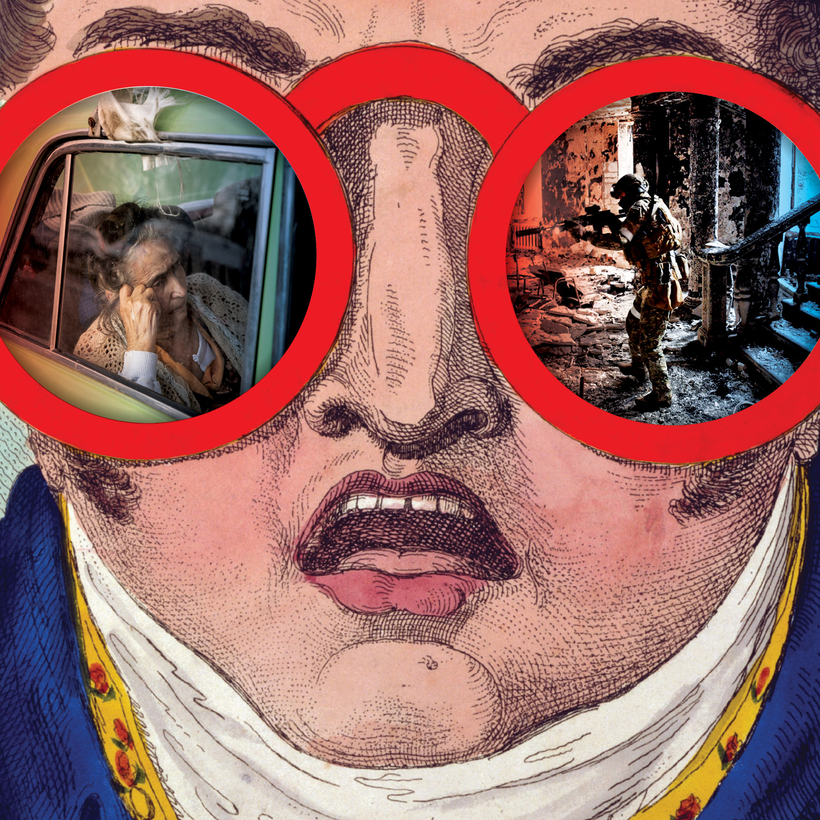In April of 2022, around 50,000 Ukrainians were crossing the border each day into Poland. Many landed in Przemyśl, at a transit center set up in a former big-box store. One of them, Sveta, was an 18-year-old university student from Mariupol, who had just arrived with her mother and elderly grandmother. The following are excerpts from interviews carried out with her over the past 10 months. —Marcia DeSanctis
There had been a lot of covid cases at school [in Kyiv], so I came back to my family’s apartment in Mariupol and was home when the invasion and the occupation started. We had no mobile connection, no Internet, no electricity, no water. Mom had been salting meat for us to eat, and we cooked it in a fire in the courtyard. As we heard planes flying overhead, we waited and hoped they would not bomb us. But we knew we were surrounded.

